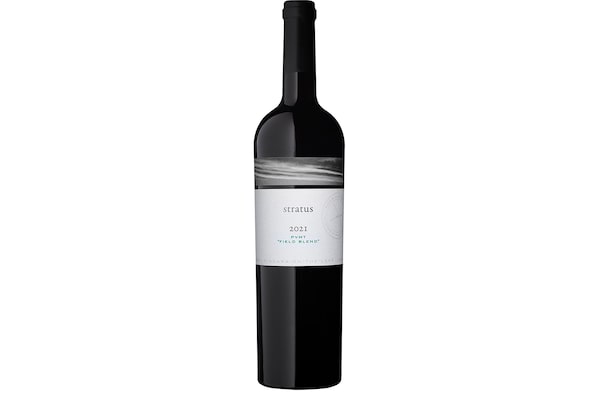
Stratus winemaker Dean Stoyka.Steven Elphick/Supplied
On April 22, to coincide with Earth Day, Stratus Vineyards releases a new red wine from its estate in refilled bottles. It’s a pilot project to see about the potential of collecting and cleaning wine bottles for reuse instead of being recycled and repurposed for another industry.
Winemaker Dean Stoyka says the trial comes in response to a study launched in 2020 between the Niagara-on-the-Lake winery and Niagara College’s environmental program, to gauge the life cycle assessment and carbon footprint from the vineyard to bottle, detailing everything from fertilizers and fuel usage in the vineyard to electricity and water usage.
A major hotspot is packaging owing to the use of glass bottles, Stoyka explains. “Our bottles alone represented 39 per cent of the company’s carbon footprint.”
The switch to lightweight glass in 2023, selecting a 370-gram bottle to replace the original 755-gram packaging, reduced that number by 16 per cent.
What’s behind the wine trade’s resolution to reduce the weight of glass bottles?
But Stoyka thinks more can be done on that front. Since 2020, he’s been in discussions with Circulr, a Kitchener-Waterloo based company that works with producers to help them reuse their packaging. A significant part of the business is washing and sanitizing glass jars from the food industry to ensure any germs or bacteria are removed before the containers are packaged, sealed and sent back to the supplier for reuse.

Stratus Vinyards PVMT Field Blend.Supplied
Cleaning wine bottles for reuse posed significant challenges such as how to remove capsules and labels. Last summer, Stratus collected 50 cases of empty bottles from the tasting bar and customers which were sanitized and came back to the winery. Recycled bottles were used for a new release, PVMT Field Blend 2021, a blend of petit verdot, malbec and tannat grapes that were harvested and fermented together. Forty-four cases of the wine will be sold online starting April 22 for $75 a bottle.
Established in 2000, Stratus focused on sustainability from the ground up. When the winery facility opened in Spring 2005, it was the first LEED (Leadership in Energy and Environmental Design) building in Canada and the only certified winery in the world. Stoyka says the winery will start collecting bottles again, looking to gather 200 cases of the new lightweight glass bottles, but he’s not sure what wine he will use to refill them. Along the way, they are figuring out ways to make the collecting and cleaning process quicker, cheaper and more effective.
He is also talking to other local wineries to share his experiences and look for interest to develop a regional glass program, like the partnership of beer producers that came together to develop a standard bottle for the industry to use and reuse. Stoyka welcomes the opportunity to work together to create some signature Niagara bottle designs even if it means losing the individuality of packaging. “We are all about sustainability,” he says. “Environmental considerations are more important than aesthetics.”